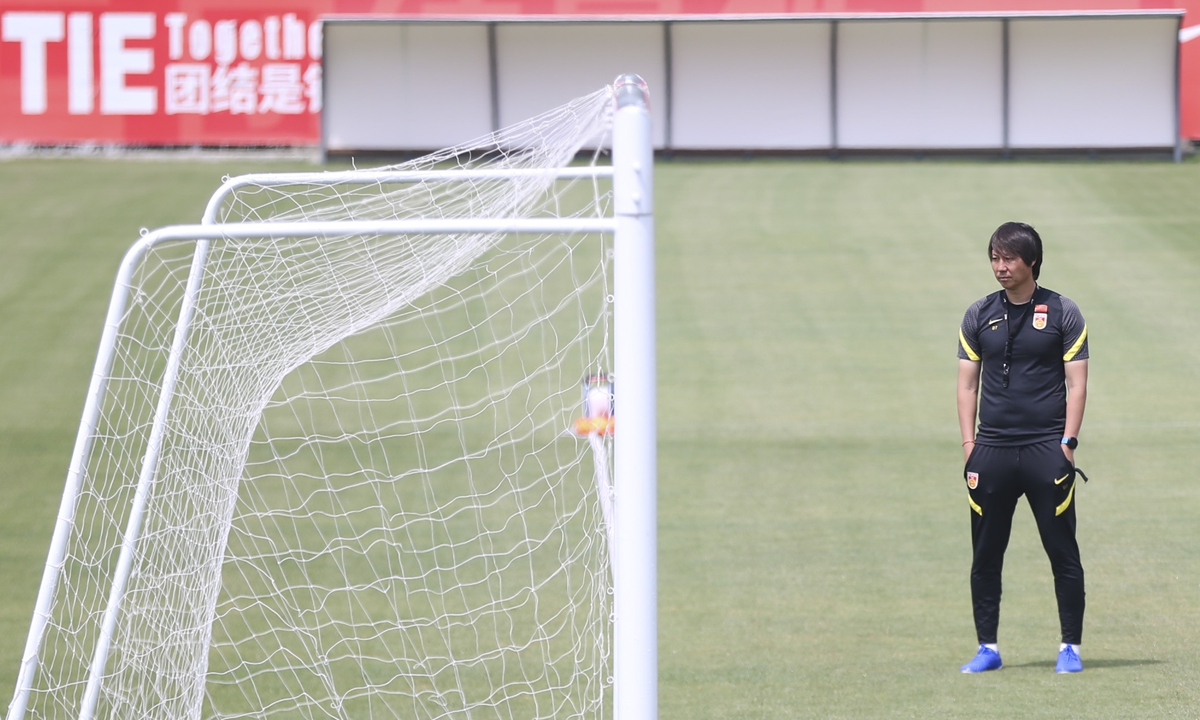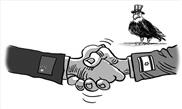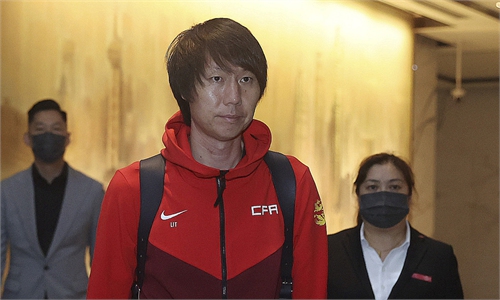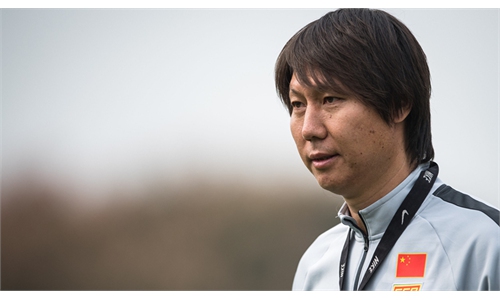SPORT / MISCELLANY
Former national soccer team coach Li stands trial for bribery
Accepted bribes totaling over $7 million: court

Li Tie Photo: VCG
The trial of Li Tie, former head coach of the Chinese national men's soccer team, for accepting and offering bribes to non-state employees began at the Xianning Intermediate People's Court in Central China's Hubei Province on Thursday. The trial comes as authorities announced new efforts to strengthen supervision of the sport.
From 2019 to 2021, Li, taking advantage of his position as the head coach, illegally accepted bribes totaling over 50.89 million yuan ($7.04 million). Li pleaded guilty and expressed remorse in court, according to the court.
From 2015 to 2019, while working as the manager of the Hebei Huaxia Fortune Soccer Club and the Wuhan Zall Club, Li bribed other soccer clubs to cooperate or play passively during matches in order to win or achieve favorable outcomes, speding a total of over 39.05 million yuan.
From 2017 to 2019, leveraging his positions as general manager and head coach at the Wuhan club, Li received a total of 26.75 million yuan from the Hebei club to assist it in player transfers and winning matches.
Li's trial comes after four former Chinese Football Association (CFA) officials, including chief Chen Xuyuan and vice chief Yu Hongchen, were given prison sentences on Tuesday for taking bribes.
On Thursday, CFA issued two circulars on its official website to strengthen supervision and management of the soccer industry, enhance transparency in soccer operations, and promote the sport's healthy development.
First, the soccer governing body released plans to recruit public supervisors nationwide. The supervisors will take part in CFA briefings, provide feedback and suggestions on relevant tasks based on their research, and play supervisory roles in activities such as professional soccer leagues, youth matches and referee assignments.
The other is to encourage the public to report violations of sports competition rules or breaches of sports ethics that lead to improper changes in the course or outcome of the game. A whistleblower who provides valid clues that are confirmed upon investigation can be granted rewards ranging from 2,000 to 20,000 yuan.
The investigations into individuals in the soccer sector such as Li signify the beginning of a new chapter in the governance of corruption in the soccer domain, according to China's Supreme People's Procuratorate in February.
In an anti-corruption documentary aired on China Central Television (CCTV) in January, Li, as the first subject investigated in the soccer's anti-corruption campaign that started in 2022, conveyed profound remorse, acknowledging that he ought to have kept his head to the ground and followed the right path.
Li admitted in the documentary that he bribed his way to the stewardship of the Chinese national team by offering 3 million yuan to CFA officials when he was the manager of the Wuhan Zall club of the Chinese Super League.
The 47-year-old, who had a stint with the English Premier League side Everton, also confessed involvement in match-fixing as a means to secure promotions for his club.
"Achieving 'success' through such improper methods only fueled my impatience and desire for quick results," he said in his televised confession.
Liu Yu, a Beijing-based sports commentator, told the Global Times on Thursday that the recent sentences sounded an alarm for the Chinese soccer community, prompting introspection and an overhaul of the sport.
Former CFA chief Chen Xuyuan was handed a life sentence for accepting bribes amounting to 81 million yuan while former vice chief Yu Hongchen was sentenced to 13 years in prison on Tuesday.
A national soccer work conference was convened in Beijing on Wednesday with the aim to collectively promote the healthy development of soccer in China.
Zhang Jiasheng, a deputy director of the General Administration of Sport and Party secretary of CFA, said in the conference that the key to advancing soccer reform and development lies in deepening institutional and systemic reforms.
"Sports administrative departments and soccer associations should at all levels reach a consensus on development, work together to deepen reform in soccer, and establish a collaborative and efficient soccer management system," said Zhang.
With the goal of building China into a leading sports power and revitalizing soccer, sports governing bodies at all levels were called to focus on youth training, establish correct goals for youth development and improve the quality of youth training.
Stringent measures will be implemented to combat issues such as match-fixing and corruption in the soccer sector and to restore a healthy soccer ecology and put Chinese soccer back on the track of healthy development.



